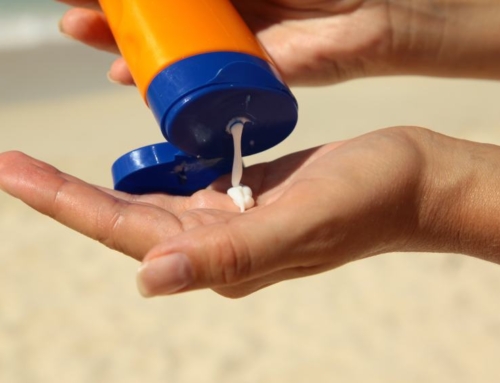In the past month, I have discussed many things for gut health including fiber and prebiotics. This topic wouldn’t be complete without a conversation about probiotics. We all have bacteria in our GI tract that have very specific jobs breaking down food, helping our mood, keeping our weight under control, supporting our immune system, helping with regularity, helping with the stress response and processing waste. If you do a stool analysis you will find a multitude of strains of bacteria that are supposed to be there just for these reasons. When an entire species is deficient or overgrown then bad things can happen with a multitude of symptoms. The gut microbiome is a hot area of research that is not only spanning medicine but actually stepping back into the origin of the bacteria in the soil. More on that another time though. When the gut biome is off then an effort to reset or replenish it may be helpful. Cue probiotics. Probiotics are actually beneficial bacteria that’s sole purpose it helping colonize the gut again. Not all probiotics are created equal though and research is showing there are certain strains that become important in different conditions. READ ON to learn what you need to know about probiotics: how to choose them, what strain you need as well as some of the beneficial roles they play…. You may be surprised to learn that they can help with inflammatory bowel disease, IBS, H pylori, mood as well as other gut issues. You will learn which strains to take if you take antibiotics, have H pylori, IBD and other health conditions.
One of the biggest side-effects of antibiotics is killing off the beneficial flora in the gut. Antibiotic induced diarrhea is a real threat and can create major long term side-effects especially if clostridia difficile enters the picture. Research has been looking at ways to prevent this and even though the literature is there I am amazed how many people are placed on antibiotics without support. We know we will be making progress when a person receives a prescription for an antibiotic and a probiotic at the same time ESPECIALLY when in the hospital. For now, the onus is on you to grab one so let’s talk about the different strains and how to take them.
If you are taking an antibiotic there are a lot of conflicting theories about if you should take a probiotic, when and what kind. Here is my recommendation:
1. Take a probiotic while you are still on the antibiotic – just not at the same time or you will have dead bugs. True, it won’t be as effective but waiting allows an opportunity for major overgrowth as well as significant deficiencies. Studies show when you take the probiotic during the course of the antibiotic you may be able to fend off the antibiotic induced diarrhea. See below for the best strains.
2. Take a high billion count (greater than 50 billion) of probiotics especially during the course of the antibiotic.
3. If you have a low white blood cell count or are immunocompromised in any way you will want a heat treated probiotic to avoid potential issues with too many live bacteria creating their own problem.
4. Reach for a multi-strain probiotic. Strains containing lactobacillus casei, reuteri and/or rhamnosus and bifidobacter bidfidum have been reported to reduce the onset of antibiotic induced diarrhea. Add in saccharomyces boulardi and you have even better chance of avoiding it. When I am doing a heavy duty antibiotic protocol I make sure my patients have all of these.
What about other conditions?
H pylori is a bacteria that is found in the stomach and is notorious for causing stomach ulcers. It is very difficult to eradicate and the treatment protocols require multiple antibiotics. Studies have shown that probiotics may also be beneficial in fending off H pylori and can be bacteriocidal (killing) in and of themselves. A combination of lactobacillus helviticus and lactobacillus rhamnosus had strong H pylori eradication as well as combinations of lactobacillus reuteri, saccharomyces boulardi, bifidobacter animalis, and lactobacillus acidophilus. These are not strong enough to treat H pylori by themselves but when used in conjunction with the antibiotics there is an increased chance of eradication of the H Pylori.
IBD (inflammatory bowel disease) has many causes and while I believe many cases of IBD are actually food sensitivity issues there are some studies that show certain strains of probiotics to be beneficial. If you have IBD work on figuring out your food triggers but you might also want to add in Saccharomyces boulardi and VSL#3. The most compelling probiotic is VSL#3 which is a prescription probiotic. It is a combination of the following: Bifidobacter (B) Breve, B. longum, B infantis, Lactobacillus (L) acidophilus, L plantarum, L paracasei, L helveticus and Strept. Thermophiles. At the time of this writing, I am not sure if VSL#3 is still available but you can recreate this product by looking at the strains. Treating IBD requires high doses (greater than 100 billion) and should be used with the guidance of your physician.
Different strains play different roles in gut healing. Here is an example of some specific strains and their potential uses. Keep in mind, don’t use single strain products but combinations with these in them may be beneficial.
Help with constipation:
• Bifidobacterium lactis
• Bifidobacterium animalis: (nicknamed Bifidus regularis)
• Lactobacillus casei Shirota and Bifidobacterium lactis
Help with vaginal flora:
• Lactobacillus rhamnosus and Lactobacillus fermentum
Help with urinary tract issues:
• Lactobacillus rhamnosus and Lactobacillus reuteri
Help with stress and support of the neurotransmitter GABA (which is calming):
• Lactobacillus rhamnosus
Help with cholesterol:
• Lactobacillus reuteri, Lactobacillus reuteri and Lactobacillus acidophilus
Help with gas and IBS (this also includes the ones under constipation):
• Lactobacillus plantarum
And the list continues and will hopefully grow! There is also a growing list of medical conditions that are caused by overgrowth of bacteria. Bacteria like fusobacterium has been linked to colon cancer, H pylori linked to stomach ulcers and firmictues linked to obesity, for example. I think our next generation will hopefully be able to modulate some medical conditions just be treating the gut biome!
A talk about probiotics would be remiss if I didn’t mention the different theories of having to refrigerate or not, coated or not, etc. This is a huge topic in and of itself. The short discussion is not all live bugs get along with each other so some products need to be refrigerated to keep them from taking each other out. Getting a reputable product becomes paramount because these companies have done their homework on figuring out which ones play nice and which ones don’t. In addition, each company has technologies to ensure their product gets delivered to the intestines and not killed off by the acidity of the stomach. As long as the company has paid attention to these details the delivery system will be appropriate for those specific strains. So follow the instructions on the bottle in whatever product you choose.
There is obviously more to probiotics but the short story is don’t buy a bargain basement brand, avoid single strains, use probiotics of about 15- 30 billion for routine use and more than 50 billion for use with antibiotics.
To your health,
Laura









